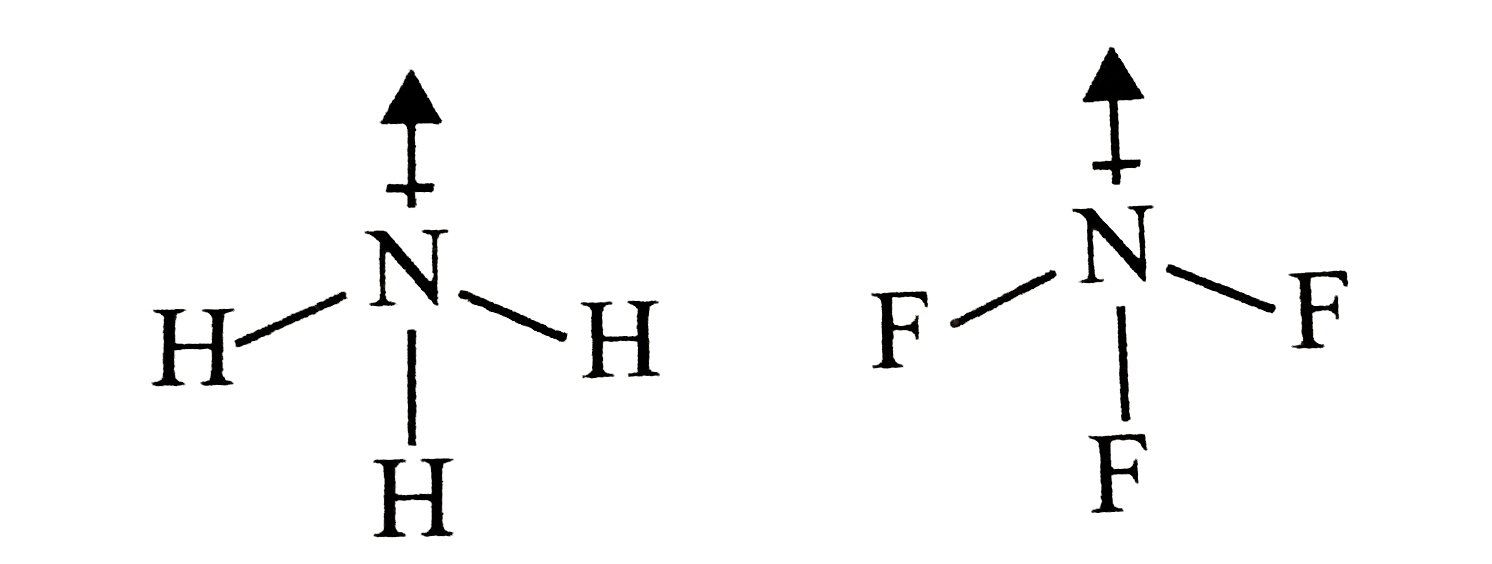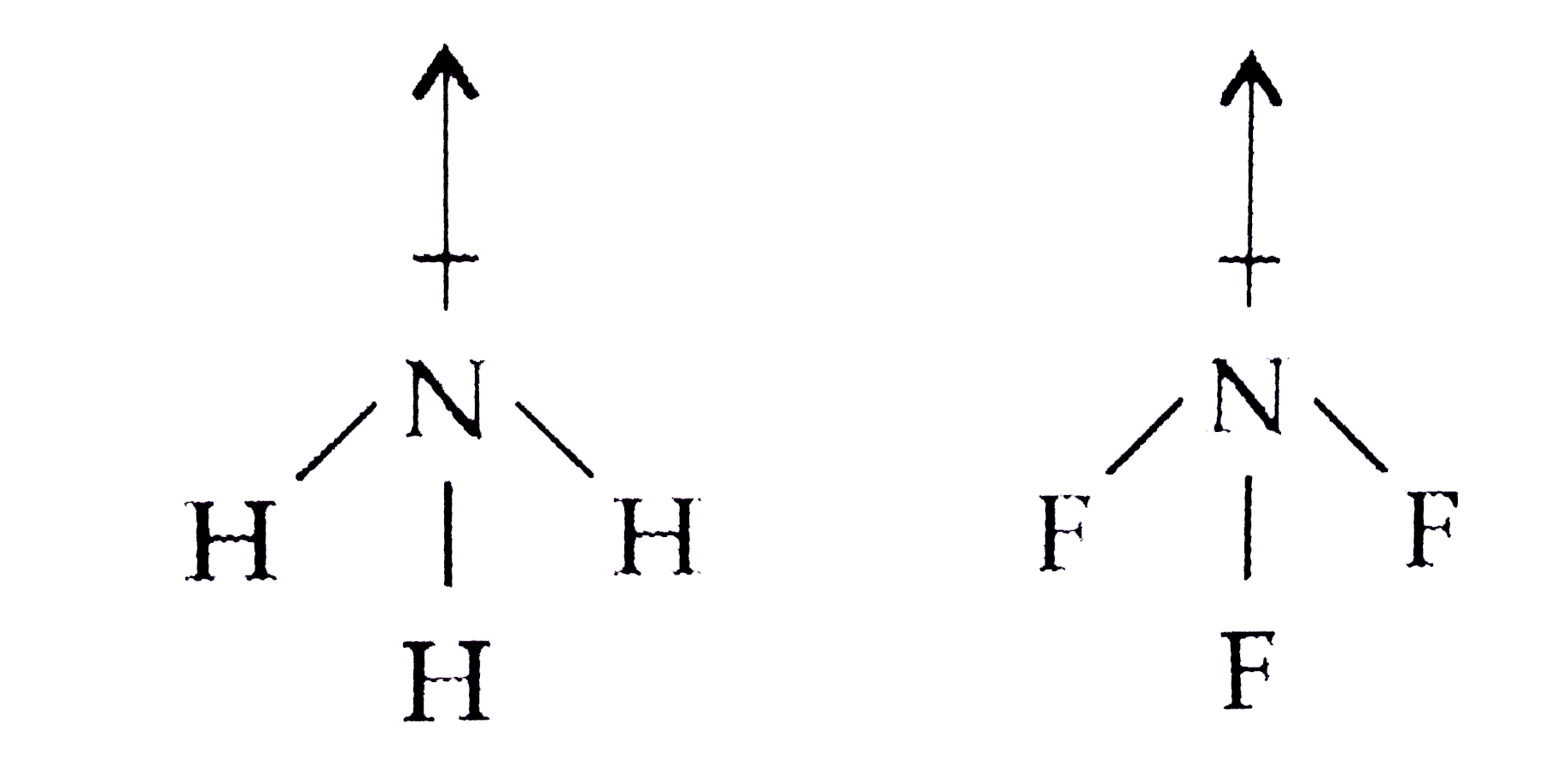Although F is more electronegative than H, the resultant dipole moment of is much more than that of . It can be explained as

the lone pair of nitrogen opposes the dipole moment of while it is added to the dipole monet of
all the dipoles of are in same direction
all the dipoles of are in opposite direction
has a regular geometry while has irregular geometry which makes dipole moment of more than .
The correct Answer is:A
Topper's Solved these Questions
- CHEMICAL BONDING & MOLECULAR STRUCTUREBOOK - NCERT FINGERTIPSCHAPTER - CHEMICAL BONDING & MOLECULAR STRUCTUREEXERCISE - Vsepr Theory
15 Videos
- CHEMICAL BONDING & MOLECULAR STRUCTUREBOOK - NCERT FINGERTIPSCHAPTER - CHEMICAL BONDING & MOLECULAR STRUCTUREEXERCISE - Valence Bond Theory
7 Videos
- CHEMICAL BONDING & MOLECULAR STRUCTUREBOOK - NCERT FINGERTIPSCHAPTER - CHEMICAL BONDING & MOLECULAR STRUCTUREEXERCISE - Bond Parameters
13 Videos
- CLASSIFICATION OF ELEMENTS AND PERIODICITY BOOK - NCERT FINGERTIPSCHAPTER - CLASSIFICATION OF ELEMENTS AND PERIODICITY EXERCISE - Assertion And Reason
15 Videos
Similar Questions
Knowledge Check
Dipole moment of NF3 is smaller than :
ANH3BCO2CBF3DCCl4The dipole moment of NF3 is much less as compared to that of NH3 because
A1. the size of N atom is much less than that of H atomB2. F atom is more electronegative than N atom, whereas H atom is less electronegative than N atomC3. unshared electron pair is not present inNF3D4. number of lone pairs in NF3 is much greater than in NH3.
Dipole moment of NH3 is more than that of NF3, Explain.
View SolutionDipole moment of NF3 is smaller than :
View SolutionDipole moment of CH3F is less/more than that of CH3CI.
View SolutionDipole moment of CH3F is less/more than that of CH3CI.
View SolutionAlthough fluorine is much more electronegative than hydrogen yet the dipole moment of NF3 (0.24 D) is much lower than that of NH3 (1.46 D). Explain.
View SolutionAlthough fluorine is much more electronegative than hydrogen yet the dipole moment of NF3 (0.24 D) is much lower than that of NH3 (1.46 D). Explain.
View Solution


